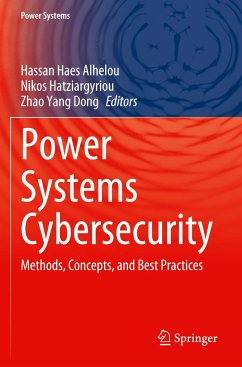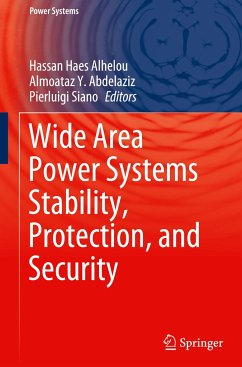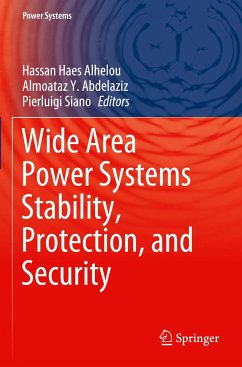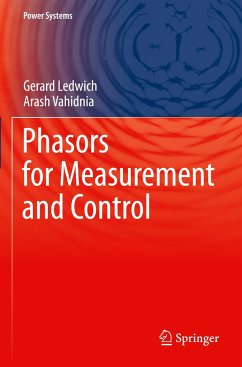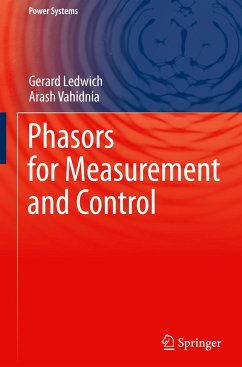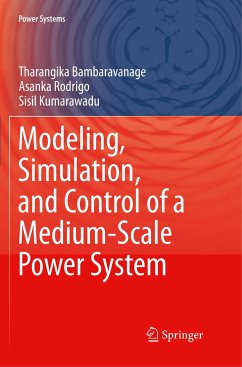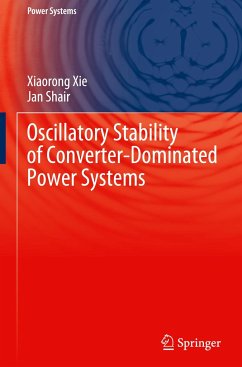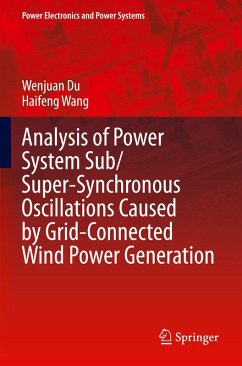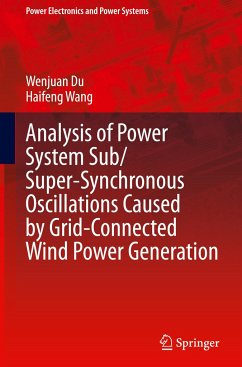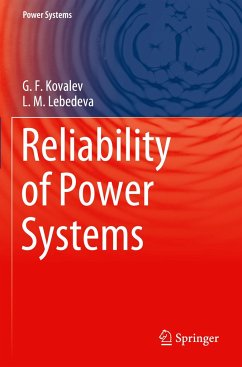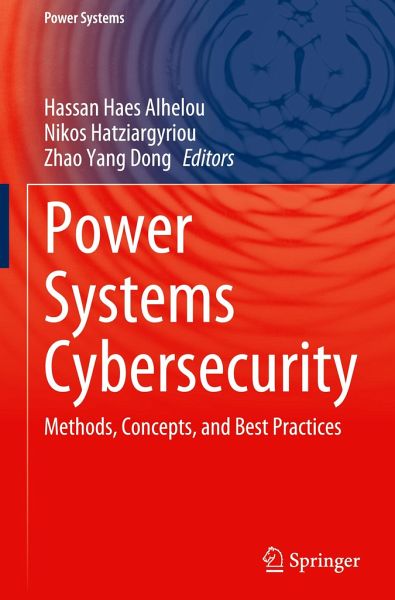
Power Systems Cybersecurity
Methods, Concepts, and Best Practices
Herausgegeben: Haes Alhelou, Hassan; Hatziargyriou, Nikos; Dong, Zhao Yang

PAYBACK Punkte
65 °P sammeln!
This book covers power systems cybersecurity.In order to enhance overall stability and security in wide-area cyber-physical power systems and defend against cyberattacks, new resilient operation, control, and protection methods are required. The cyberattack-resilient control methods improve overall cybersecurity and stability in normal and abnormal operating conditions. By contrast, cyberattack-resilient protection schemes are important to keep the secure operation of a system under the most severe contingencies and cyberattacks. The main subjects covered in the book are: 1) proposing new tole...
This book covers power systems cybersecurity.
In order to enhance overall stability and security in wide-area cyber-physical power systems and defend against cyberattacks, new resilient operation, control, and protection methods are required. The cyberattack-resilient control methods improve overall cybersecurity and stability in normal and abnormal operating conditions. By contrast, cyberattack-resilient protection schemes are important to keep the secure operation of a system under the most severe contingencies and cyberattacks. The main subjects covered in the book are: 1) proposing new tolerant and cyberattack-resilient control and protection methods against cyberattacks for future power systems, 2) suggesting new methods for cyberattack detection and cybersecurity assessment, and 3) focusing on practical issues in modern power systems.
In order to enhance overall stability and security in wide-area cyber-physical power systems and defend against cyberattacks, new resilient operation, control, and protection methods are required. The cyberattack-resilient control methods improve overall cybersecurity and stability in normal and abnormal operating conditions. By contrast, cyberattack-resilient protection schemes are important to keep the secure operation of a system under the most severe contingencies and cyberattacks. The main subjects covered in the book are: 1) proposing new tolerant and cyberattack-resilient control and protection methods against cyberattacks for future power systems, 2) suggesting new methods for cyberattack detection and cybersecurity assessment, and 3) focusing on practical issues in modern power systems.



